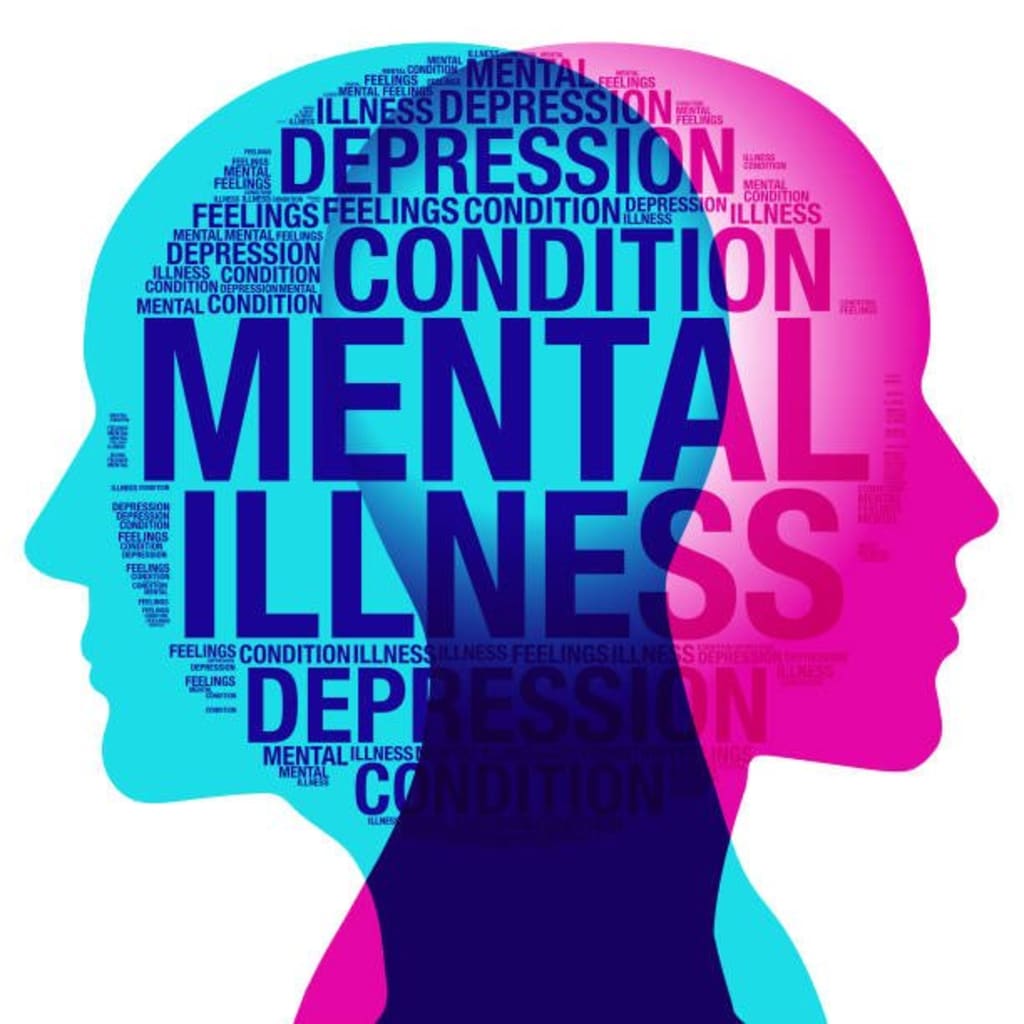Mental health disorders are prevalent and can significantly impact an individual’s daily life, relationships, and overall well-being. Understanding these disorders and their management is crucial for promoting mental health and providing support to those affected. This article explores some common mental health disorders, their symptoms, and effective management strategies.
Common Mental Health Disorders
Anxiety Disorders
Anxiety disorders are characterized by excessive fear and worry that interfere with daily activities. Common types include:
- Generalized Anxiety Disorder (GAD): Persistent and excessive worry about various aspects of life, such as work, health, and social interactions.
- Panic Disorder: Recurrent panic attacks involving sudden, intense fear and physical symptoms like heart palpitations, shortness of breath, and dizziness.
- Social Anxiety Disorder: Intense fear of social situations, leading to avoidance and distress.
Symptoms:
- Restlessness
- Rapid heartbeat
- Sweating
- Difficulty concentrating
- Sleep disturbances
Mood Disorders
Mood disorders involve disturbances in a person’s emotional state, leading to periods of intense sadness or overly elevated moods.
- Depression: Persistent feelings of sadness, hopelessness, and a lack of interest in activities once enjoyed.
- Bipolar Disorder: Characterized by extreme mood swings, including emotional highs (mania) and lows (depression).
Symptoms:
- Depression: Fatigue, changes in appetite, feelings of worthlessness, and suicidal thoughts.
- Mania: Increased energy, reduced need for sleep, grandiosity, and impulsive behavior.
Stress-Related Disorders
Stress-related disorders arise after experiencing or witnessing traumatic events.
- Post-Traumatic Stress Disorder (PTSD): Persistent mental and emotional stress occurring as a result of injury or severe psychological shock.
- Acute Stress Disorder: Severe anxiety and dissociation that occur within a month of a traumatic event.
Symptoms:
- Flashbacks
- Nightmares
- Severe anxiety
- Hypervigilance
- Avoidance of reminders of the trauma

Eating Disorders
Eating disorders involve preoccupation with food, body weight, and shape, leading to dangerous behaviors.
- Anorexia Nervosa: Extreme restriction of food intake, intense fear of gaining weight, and a distorted body image.
- Bulimia Nervosa: Episodes of binge eating followed by purging (vomiting, excessive exercise, or use of laxatives).
- Binge-Eating Disorder: Regular episodes of overeating without purging behaviors.
Symptoms:
- Anorexia: Severe weight loss, brittle hair and nails, and amenorrhea (absence of menstruation).
- Bulimia: Swollen salivary glands, tooth decay, and gastrointestinal problems.
- Binge-Eating: Obesity, shame, and distress about eating behaviors.
Personality Disorders
Personality disorders involve enduring patterns of behavior, cognition, and inner experience that deviate markedly from the expectations of the individual’s culture.
- Borderline Personality Disorder: Instability in moods, behavior, self-image, and functioning, leading to impulsive actions and problems in relationships.
- Antisocial Personality Disorder: Disregard for others’ rights, often resulting in aggressive, deceitful, and manipulative behavior.
Symptoms:
- Borderline: Intense episodes of anger, depression, and anxiety; fear of abandonment.
- Antisocial: Lack of empathy, frequent lying, and violation of the rights of others.
Managing Mental Health Disorders
Effective management of mental health disorders typically involves a combination of professional treatment, self-care, and support systems.
Professional Treatment
- Therapy: Various forms of psychotherapy, such as cognitive-behavioral therapy (CBT), dialectical behavior therapy (DBT), and exposure therapy, can help individuals understand and change their thought patterns and behaviors.
- Medication: Psychiatrists may prescribe medications such as antidepressants, anti-anxiety medications, mood stabilizers, or antipsychotics to help manage symptoms.
- Hospitalization: In severe cases, short-term hospitalization may be necessary to ensure safety and provide intensive treatment.
Self-Care Strategies
- Healthy Lifestyle: Regular exercise, a balanced diet, and adequate sleep can improve overall mental health.
- Mindfulness and Relaxation: Techniques such as meditation, deep breathing exercises, and yoga can help reduce stress and anxiety.
- Routine and Structure: Maintaining a daily routine and setting realistic goals can provide stability and a sense of accomplishment.
Support Systems
- Social Support: Building a network of supportive friends and family can provide emotional support and reduce feelings of isolation.
- Support Groups: Participating in support groups with others experiencing similar issues can offer understanding and encouragement.
- Educational Resources: Learning about mental health disorders and treatment options can empower individuals and their loved ones to make informed decisions.
Conclusion
Understanding and managing mental health disorders is essential for improving quality of life and fostering resilience. By recognizing symptoms, seeking professional help, and adopting healthy lifestyle practices, individuals can effectively manage their mental health and lead fulfilling lives. Additionally, societal awareness and support play crucial roles in breaking the stigma and promoting mental wellness for all.


